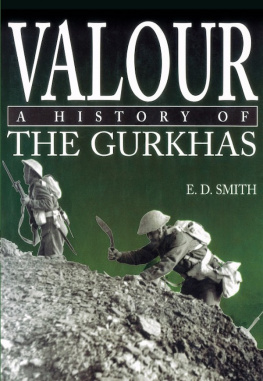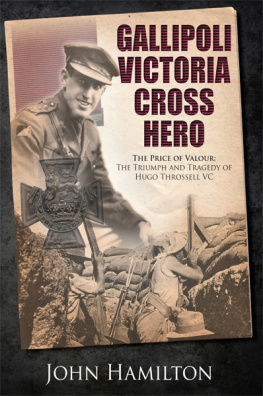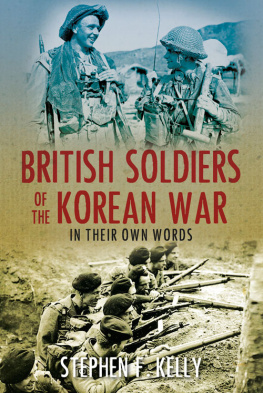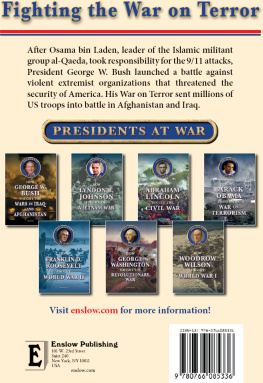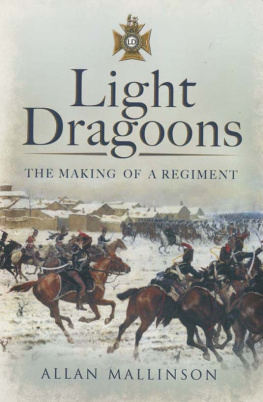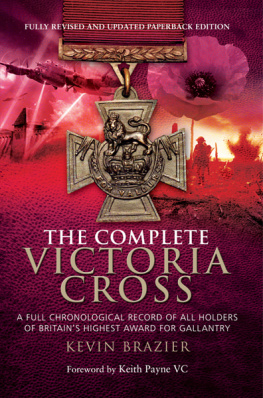Smith - Valour
Here you can read online Smith - Valour full text of the book (entire story) in english for free. Download pdf and epub, get meaning, cover and reviews about this ebook. year: 2016, publisher: The History Press, genre: Politics. Description of the work, (preface) as well as reviews are available. Best literature library LitArk.com created for fans of good reading and offers a wide selection of genres:
Romance novel
Science fiction
Adventure
Detective
Science
History
Home and family
Prose
Art
Politics
Computer
Non-fiction
Religion
Business
Children
Humor
Choose a favorite category and find really read worthwhile books. Enjoy immersion in the world of imagination, feel the emotions of the characters or learn something new for yourself, make an fascinating discovery.
Valour: summary, description and annotation
We offer to read an annotation, description, summary or preface (depends on what the author of the book "Valour" wrote himself). If you haven't found the necessary information about the book — write in the comments, we will try to find it.
Smith: author's other books
Who wrote Valour? Find out the surname, the name of the author of the book and a list of all author's works by series.
Valour — read online for free the complete book (whole text) full work
Below is the text of the book, divided by pages. System saving the place of the last page read, allows you to conveniently read the book "Valour" online for free, without having to search again every time where you left off. Put a bookmark, and you can go to the page where you finished reading at any time.
Font size:
Interval:
Bookmark:
Valour
A History of the Gurkhas

First published in the UK in 1997 by
Spellmount an imprint of
The History Press
The Mill, Brimscombe Port
Stroud, Gloucestershire. GL5 2QG
www.thehistorypress.co.uk
This ebook edition first published in 2016
All Rights Reserved
E.D. Smith 1997, 2007
The right of E.D. Smith to be identified as the Author of this work has been asserted in accordance with the Copyrights, Designs and Patents Act 1988.
All photographs courtesy of The Gurkha Museum
Maps Derek Stone 1997
This ebook is copyright material and must not be copied, reproduced, transferred, distributed, leased, licensed or publicly performed or used in any way except as specifically permitted in writing by the publishers, as allowed under the terms and condition under which it was purchased or as strictly permitted by applicable copyright law. Any unauthorised distribution or use of this text may be a direct infringement of the authors and publishers rights, and those responsible may be liable in law accordingly.
EPUB ISBN 978 0 7509 8167 5
Typesetting and origination by NPI Media Group
eBook converted by Geethik Technologies
UNLIKE a more conventional regimental history, this book covers a truly wide canvas, beginning in 1815 and ending in 1995. For much of that time and certainly up to 1947 when the Gurkha Brigade was split between the armies of independent India and Britain there were ten regiments. During the period prior to 1914, many campaigns were fought which included the Indian Mutiny of 1857, the Afghan Wars and numerous forays against rebellious tribesmen on the North-West and North-East Frontiers of India. In all these campaigns, one or more battalions of the Gurkha Brigade took part: some of their stories can only be given in outline as, inevitably, I have had to be selective. For that, I alone take the responsibility, while apologising to those who feel that their regiment or battalion should have had a prior claim to the limited space available.
During both World Wars, the British-Indian Army Gurkha Brigade was expanded from twenty regular battalions to thirty-three (First World War) and forty-five (Second World War). Every man that came down from the hills of Nepal to enlist was a volunteer, coming from a small kingdom that was not part of the British Empire; truly a magnificent response to this countrys cry for help. It would be a monumental task, and would require an inordinately lengthy book, to cover the exploits of so many battalions in so many campaigns in Europe, the Middle East and in South-East Asia. Despite that, I have tried to give some background to each of the campaigns, since otherwise the narrative would be unduly bald. For such a reason, the bibliography is fairly lengthy as, perforce, I have had to consult a great many sources during my research. After 1948, the narrative covers Britains Brigade of Gurkhas only, as to have included the six regiments that now serve in the Indian Army Gurkha Brigade would not have been possible without unduly increasing the size of the book.
Qui sexcuse, saccuse: enough of apologies! I could not have written this book or obtained the vast majority of the photographs without the unstinted help given by the Gurkha Museum, first under the curatorship of Major John Lamond, and now, Brigadier Christopher Bullock. As one of the Museum volunteers, Lieutenant-Colonel Mike Broadway has played a dual role in the production of this book. It has been he who has searched for and produced most of the photographs as well as acting as a proof-reader of the first rough draft. I must also pay tribute to the painstaking editorial efforts of Tony Buchan, whose copious notes helped me considerably as well as giving my wife, Jill, the task of amending the final draft! I thank her, too. For the ready help they have afforded me, my heartfelt thanks are due to the Secretaries of the ten Gurkha Regimental Associations and the three Gurkha Corps.
To Mrs Gloria Tanner, my profound gratitude for typing and retyping drafts, as well as deciphering my intricate corrections, which must have tried her patience more than somewhat on numerous occasions.
To you all, Dhanyabad (thank you).
E.D.S.
1 | NEPAL THEN AND NOW |
N EPAL lies between the great alluvial plains of India and the cold, wind-seared tablelands of Tibet. On a map of the world, the small country is sandwiched between giant neighbours, India and China, something that the Nepalese have learnt to live with over the years. It is a land of great beauty, of high mountains and mighty rivers, a land that is crisscrossed by mountain tracks where generations of hillmen have moved over centuries past as traders, farmers or to tend flocks on high pastures. Truly the borne of the Gurkha warriors is a mountain kingdom.
With thousands of tourists now pouring into Nepal by land and air each year, it is difficult to imagine what the country was like in years gone by. Ever since the East India Company came into contact with the mountain kingdom 200 years ago, and until the late 1940s, when India was given her independence, the Nepalese Government saw to it that except for the tiny handful who were invited, from time to time, by the Court, foreigners were excluded from the country. The movements of those favoured few were confined to the Valley of Nepal and only on very special occasions was permission given them to travel elsewhere in the country. Nepal was a forbidden country as far as foreigners were concerned, even more inaccessible than its neighbour, Tibet, was at the time. The exclusion of Europeans was not only insisted upon by the Gurkha state but also by the British Government of India, in deference to Nepalese feelings and in order that the country should not suffer prematurely from contact with modern civilisation. Backward and primitive though the country was up to the end of the Second World War, most of the inhabitants living in the mountains were content with their simple circumstances and respected their rulers, the Maharajah and his Rana relatives, and knowing no other existence outside their country, there was no great desire for change.
There were no roads, no airports, while frontier posts existed to deter intruders rather than to welcome tourists into the country. But in 1947, with events moving with such speed in India as it gained its independence, inevitably there were bound to be repercussions in the little country of Nepal. The Indian-based Nepalese National Congress sponsored armed insurgents across the frontier from India and there were political strikes in the Terai, particularly at the mills of Biratnagar. Under pressure the Maharajah (who was also Prime Minister) in Kathmandu promised to introduce a measure of democracy but on all important matters decisions were still to be left in his hands. Moreover, the rights of the ruling Rana family to succession in the premiership were declared to be unalterable and inalienable for all time. In addition, although there was to be a National Chamber of sixty to seventy members, twenty-eight of these were to be nominated by the Maharajah who still retained power to veto any question or proposal made in the legislature which, in his opinion, was not in the public interest. Shortly afterwards, there were more riots and open unrest but it is fair to say that the hillmen in East Nepal, the Rais and Limbus, and the Magars and Gurungs in West Nepal, still continued their normal lives, untouched by the simmering political climate that was coming to the boil in Kathmandu and in the Terai Plain which runs along the border with India.
Next pageFont size:
Interval:
Bookmark:
Similar books «Valour»
Look at similar books to Valour. We have selected literature similar in name and meaning in the hope of providing readers with more options to find new, interesting, not yet read works.
Discussion, reviews of the book Valour and just readers' own opinions. Leave your comments, write what you think about the work, its meaning or the main characters. Specify what exactly you liked and what you didn't like, and why you think so.

